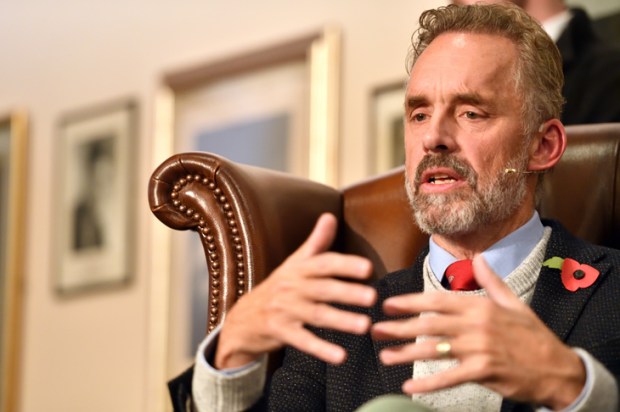 A regular series of rules for life by Pete Shmigel, a former senior state and federal political advisor and CEO of Lifeline Australia.
A regular series of rules for life by Pete Shmigel, a former senior state and federal political advisor and CEO of Lifeline Australia.
So, the Has Been’s Club recently met. Burgers and beers at a pub renovated to look more like an upmarket hairdressing salon.
We made do. My two fellow members and I have all held big jobs in politics and business, managed lots of people and issues, and once rightly or wrongly thought of ourselves as important. And, maybe, we even at times were important and, maybe, even achieved a few commendable things. At least, I hope that for myself.
Nowadays, we’re all at that point in life where we have the absolute privilege of being professional and charitable dabblers in things rather than run things. To paraphrase the song, in front of our names, we’ve got more exes than Hollywood Squares.
The agenda, of course, for our meeting started and ended with the state of the world, including its politics, corporate stuff, and media. Putting aside the GOM (Grumpy Old Men) Factor, both my mates have spent decades as professional observers of and participants in these related realms. Their many successes give them credibility to draw a singular insight about our contemporary era. And, given our respective reputations as “hard men” or “knee-cappers”, it’s not only stark but maybe surprising.
Namely, many in public life have stopped giving a shit about people.
We recounted several instances of former and always loyal work colleagues being chucked on organisational scrap heaps.
Funerals for older colleagues where people who should turn up don’t turn up.
Young careers unnecessarily ended because no one bothered to comfort or counsel.
And, distressed young women who needed someone to truly listen and respond like a responsible and kind adult should – regardless of “procedures” or training levels.
It seems to me that high-end political and business and even NGO life in Australia has become somewhat heartless. And, its symptoms are apparent. As CEO of Lifeline, I once asked the corporate bunker at the Westin in Sydney filled with 800 mostly suits: “Do you feel lonely right now?” 80% of the most powerful people in town – predominantly the dudes who run the so-called patriarchy — raised their hands.
You may not feel sorry for them, but do spare a thought for the wives, siblings, and kids of the 75% of suicide deaths of 3000 each year that are male.
On the way home from the pub – by bus of course – several themes around this lack of caring, connection and mutual responsibility came up for me.
We are allowing our individual or tribal biases blind us to other people’s humanity.
As moral psychologist Jonathan Haidt has observed, we seem to think that those who have a different worldview or disagree with us are somehow malicious or stupid. Not only is our narrative right and their’s wrong but they’re flawed for even having it. Once we see those who disagree with us as not quite human or well-intentioned as we are, it’s then easy to make our opponents into our enemies.
We monopolise positive attributes to only “our side”.
The tiny but influential group of people on the organised Left claims only they and their barrackers are empathetic. The tiny but influential group of people on the organised Right claims only they and their barrackers are rational. In the process, a whole bunch of pragmatic and non-ideological people (read: most Australians) simply get cut out because the cultural war is irrelevant to them.
We value our own self-images, reputations and personal “brands” over the contexts and people that created the opportunities to even have them.
Vanity is no longer frowned on; it’s the cornerstone of multi-billion dollar corporate empires.
Or as pollster and strategist Mark Textor presciently said in a 2014 essay: “The self-indulgent ignore the needy. The self-indulgent ignore the tyrants. The self-indulgent tweet and not act.”
Indeed, using Google Dictionary, you can learn that the use of the word “duty” – the opposite of vanity — has dropped by 300% in the last 100 years. “Selfie” has increased by 4000% since its inception around the turn of the century.
We have converted our media into a contest of personalities and their alleged motives, rather than comparative analysis of presented policies and their costs and benefits.
Do this as a test: read the political coverage in our daily papers and count the number of sentences that are actually about a given policy / issue rather than gamesmanship, faux electoral analysis, or questioning of motives. Press conferences have become like UFC for nerds rather than any genuine attempt at either accountability or information gathering.
We preach the importance of empathy and then we weaponize it when it suits us.
I don’t know Andrew Laming. But it sounds like some of his behaviour has been dickheadery, and I hope people haven’t been too badly hurt by it. However, mocking by some elites of his empathy training and then espousing ‘compassionate and inclusive’ values at the same time seems less than honest or kind.
All of this stems from one place: for all the talk of emotional intelligence, we are actually letting ourselves get really dumb.
That is fixable because we have an abundance of choice in this society where we are not daily fighting for clean water or food. Here are three choices that can be made today.
From the deliberations of the Has Been’s Club directly you reader, here are Three Ways to Give a Shit.
- Choose one work colleague to take an interest in. Don’t let another anonymous day go by. What’s interesting about that colleague? What don’t you know about him or her, their life and their aspirations? What good causes do they support that you might admire? How can you in some small way be helpful to him or her?
Among my travels, I’ve spent lots of time near garbage and recycling trucks and sites and the unglamorous but earnest guys who work them. An old-timer once said to a much younger me: every person has something good and graceful about them and you can find it if you look. Be able to go home tonight and tell your spouse, partner, housemate, or Rex: I made a new friend today.
- Choose one conversation where you intently and unconditionally listen. You will have dozens of conversations today from ordering your coffee to the strategy session you were hoping to avoid to talking to your kid’s best friend’s mum in the schoolyard at pick-up. And, chances are, that you might do all of those on auto-pilot. Well, switch it off and take the controls.
That means being present and really listening for how the other person is going and how they are beyond ‘fine’. That means taking what they have to say on board without judgment or without thinking about your smart reply. Be there rather than be 20 minutes ago at the last stupid email or 2 hours from now and figuring out what to cook for dinner.
- Choose one “opponent” to have coffee with. Admit it. There’s somebody whose guts you hate because they somehow disagree with you or compete with you or make you question your own ability or status. But in real terms: do they actually want to kidnap your children? Is he or she genuinely bad or idiotic? Probably not. He or she probably has a different view or different life experience, and are not the enemy they might seem to be. It might do you some good just to recognise the differences. It might save you stress and sadness – and even keep you out of gaol.
Got something to add? Join the discussion and comment below.
Get 10 issues for just $10
Subscribe to The Spectator Australia today for the next 10 magazine issues, plus full online access, for just $10.


























Comments
Don't miss out
Join the conversation with other Spectator Australia readers. Subscribe to leave a comment.
SUBSCRIBEAlready a subscriber? Log in